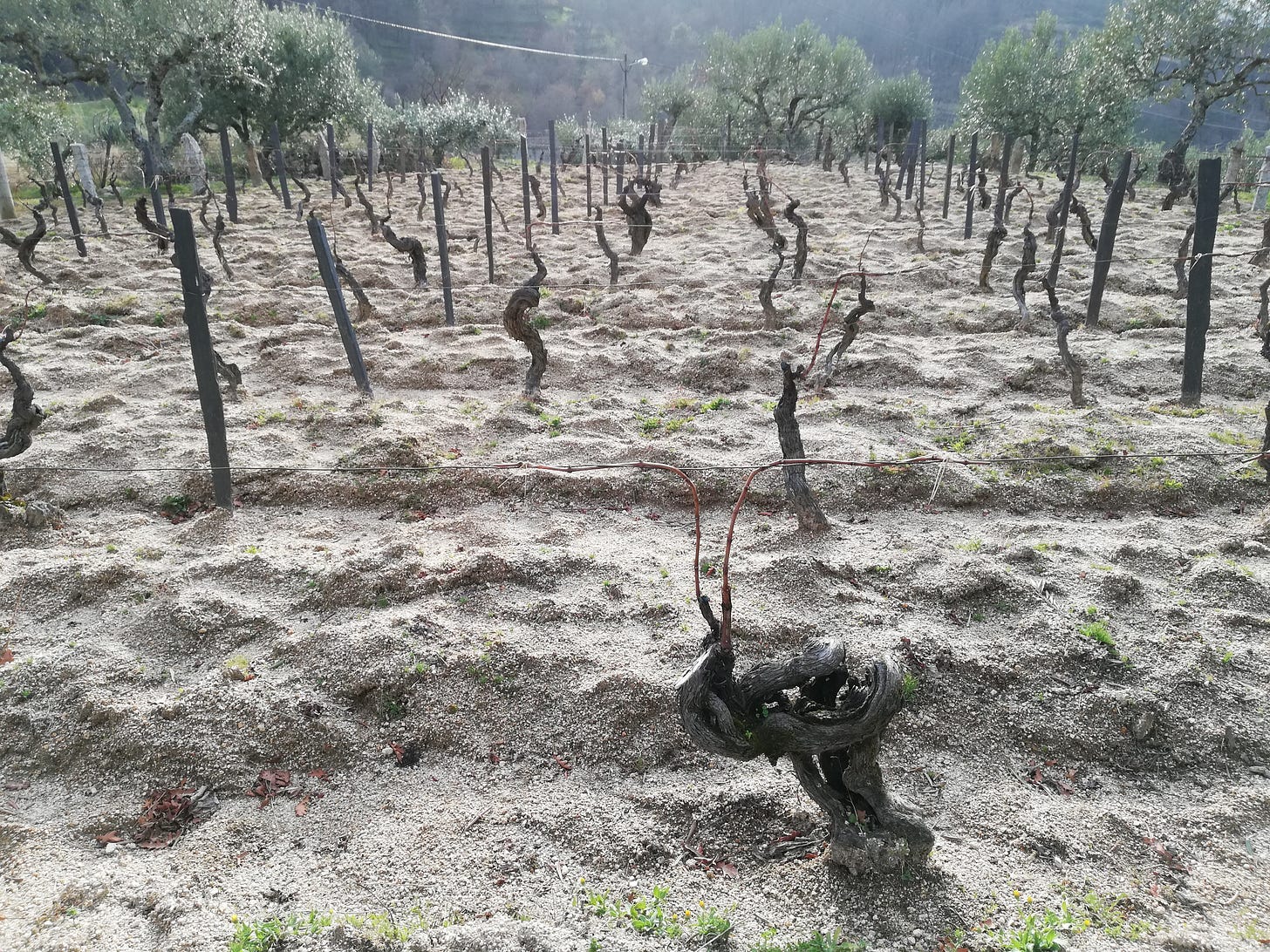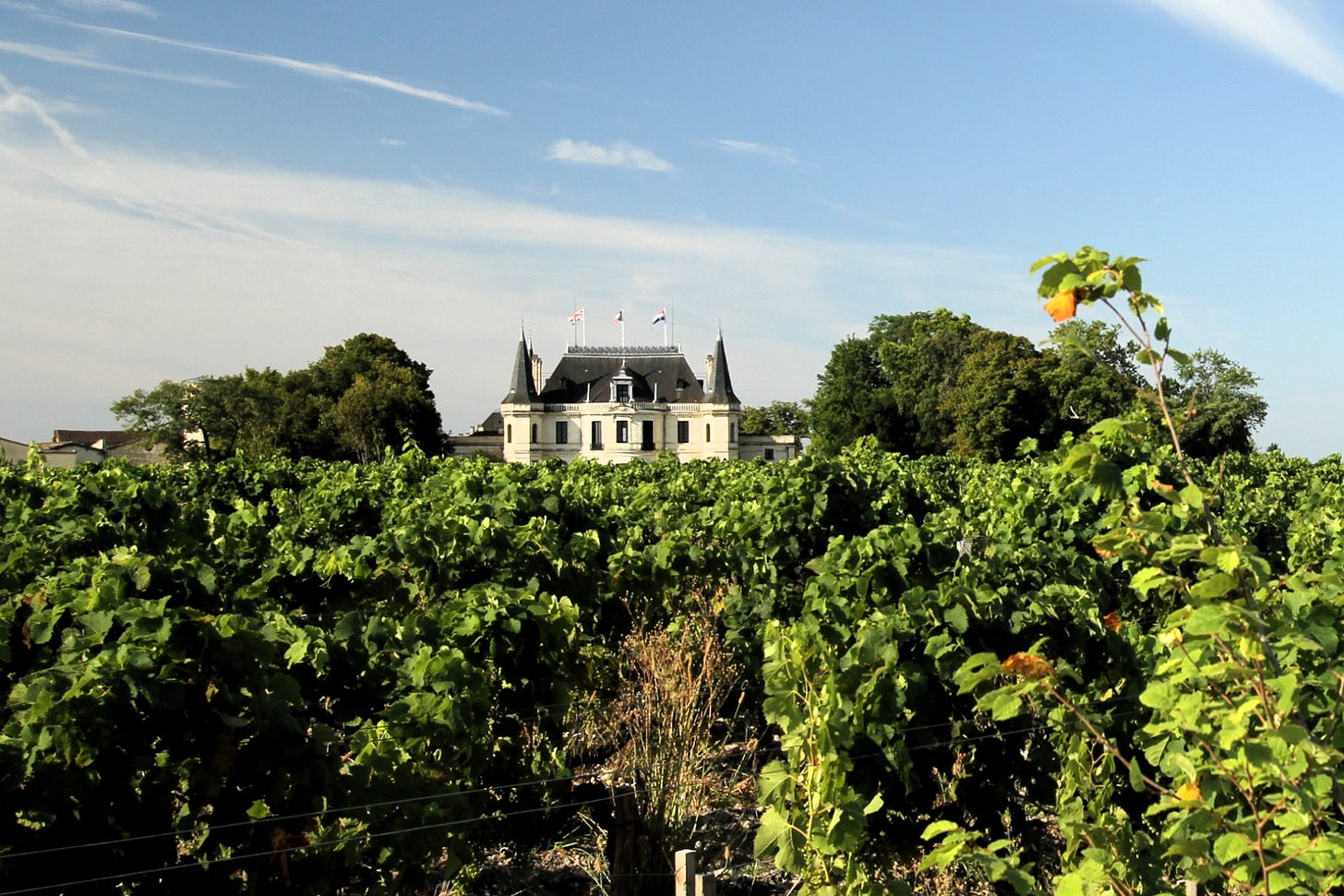What is it about French Wine?
One European country has dominated the wine world for centuries. Is it time for a change?
Look, I’ve nothing against La France. Sign me up for all the Comte and snails in garlic butter I can eat. The occasional Gallic bottle has even been known to feature on this site. But why are French wines so often presented as an elite category, beyond comparison to their peasant neighbours?
Why is it the norm that high-end restaurants around the globe devote 90% of their lists to one country? Why do wine buffs and sommeliers spend years memorising the names of obscure corners in Burgundy or the Rhone? You’d think grapes didn’t grow anywhere else.
France has been the world’s most prestigious and revered wine country for at least two centuries. A decade ago, it was also the biggest producer by volume, but both Italy and Spain have long since overtaken.
So what is it about France? Do they simply make better wine? Are they marketing geniuses? Have they just been in the game longer than anyone else? How did we get here, and how can we make it stop?
Let’s roll
If we talk about restaurants, Francophilia is driven as much by customers as it is by somms or wine buyers.
Hiša Franko, Slovenia’s only three Michelin star restaurant, makes much of their pride in local ingredients. But their wine list offers roughly equal numbers of French and Slovenian wines, dwarfing the Italian options. All other countries? Lip service only.
I recall Valtar Kramar (who created the original list) telling me they started out with an entirely Slovenian list. But when the restaurant’s reputation got on a roll and the high rollers rolled in, there was a need to roll out the bottles high rollers like to roll with.
In case you were in any doubt, money drinks French, not Slovenian. Not even Spanish, German or Italian.
France’s ascent to numéro un
French winemaking undoubtedly has a long history - at least 2,600 years. Yet the Georgians can prove they were getting wasted for much longer - up to 8,000 years. But evidence of their first winery only dates back around 5,500 years. Presumably aliens did the battonage before then.
But it’s not just about longevity, it’s a question of who was doing it. The Roman empire kept French wine cultivation in the shade, but during the middle ages the church acquired vast amounts of vineyard land and began to elevate wine production. Mildly inebriated Devout monks gave us everything from Clos Vougeot to Quarts de Chaume.
Perhaps it was the genius of the 1855 Medoc classification, or the enthusiasm of British and Dutch traders, but by the end of the 19th century France had eclipsed all other European wine nations. Even the near-destruction of its vineyards by phylloxera and oidium, plus two world wars couldn’t topple its crown.
In the 1980s, the US, Australia and New Zealand began a full-scale assault on European markets using weapons of mass-produced, varietally labelled wines (WMVs). The death of French wine was surely upon us. But reports of its demise were, as they say, greatly exaggerated. France licked its wounds and pulled up a few thousand hectares of under-performing vines, but its reputation endured.
What about France’s continued dominance in the mid-20th century? Portugal was shut off from the world by Salazar’s regime, most of central and Eastern Europe remained behind the iron curtain, busy destroying their wine industries with the blunt instrument of cooperative production. The Spanish were having a siesta and the Italians were too busy arguing about which pasta shapes should be illegal.
At some point in the 1980s, sweet wines became deeply uncool. Liebfraumilch and Black Tower sealed the fate of German wine. The Austrians, meanwhile, doubly shot themselves in the foot with a wine scandal concerning sweet wines and diethylene glycol (better known to you or me as antifreeze).
Jesting apart, one thing is certain: totalitarianism is bad for your wine industry. And whatever indignities or acts of God were suffered by France, this was not one of them. Their number one spot remained unchallenged, their place in the heart of every red-trouser wearing wine bore well and truly cemented.
No-one got fired for choosing Burgundy
But that was then. Now we have vibrant wine industries on every continent. I can walk into a shop and buy something delicious from Georgia, Slovenia or Portugal, as readily as I could walk away with a bottle from the Jura or Bordeaux.
But this diversity remains niche. Most wine professionals and wine lovers remain steadfast in their devotion to France, and their insistence that there is no other nation on earth capable of fermenting grape juice in quite the same way.
Surely it’s time for a change? I don’t think this was ever about French wine being innately better. It has more to do with history, politics and - perhaps - the French ability to elevate snobbery to a high art.
I’ll never forget presenting a masterclass on orange wines in Amsterdam in 2018. I’d poured a number of what I thought were exceptional examples from Italy, Spain, Slovenia and Austria. A Dutch gentleman stood up at the end and asked “has anyone ever tried making these kind of wines from a really good terroir?”
I was aghast, and asked him to clarify what he meant. “You know, like Burgundy or Bordeaux” he ventured. His implication was that none of the wines we’d tasted came from good terroirs.
The idea that exceptional vineyard locations do not exist in countries outside France baffled me. Burgundy hardly has a monopoly on argile-calcaire soils, after all. They’ve just learnt how to market it well after 1,200 years.
The world is full of amazing places to grow grapes. All you need is someone with sufficient skill, experience and vision to transmit that magic and get it into a bottle. Perhaps the French would hold that only they possess this talent. I beg to differ.
The continued prevalence of all-French wine lists, wine merchants and wine tasting clubs feels like a broken record to me. It reminds me of a phrase I often heard in my IT career: “no-one got fired for choosing Microsoft”. Depending on your vintage, replace Microsoft with IBM, or nowadays, probably Amazon Web Services. The point? Choosing the most obvious option doesn’t require any imagination, and no-one will criticise you for doing so.
But it doesn’t mean it’s the best.
Is French wine really the best?
Let me finish with a few blasphemous statements:
The best Rieslings don’t come from Alsace, they come from Germany and Austria.
Some of the most elegant and delicious sparkling wines I’ve ever drunk were Cavas or Corpinnats.
The world’s most seminal orange/amber wines come either from Eastern Georgia or around the Northern Adriatic (Slovenia, Italy, Croatia).
Anyone remember the judgement of Paris?
Barolo is not actually a French wine region.
Because, Blaufränkisch.
I’ll get my coat shall I?
Don’t forget to leave a comment and tell me I’m wrong. I won’t listen but you’ll have the satisfaction of having vented your spleen in public.





There are so many layers to this discussion/argument/diatribe (not dubious), that requires way more effort to organize and write down than I want to give. Therefore, I’ll boil it down thusly: if you and I can walk into our local wine shop and buy wines from pretty much anywhere we want, who cares? With people like you around the world educating us about fabulous wines from across the globe, the variety has never been better. Be the change. That’s the best one can do.
Barolo is indeed a French wine region.
Long live Italian chestnut barrels!!